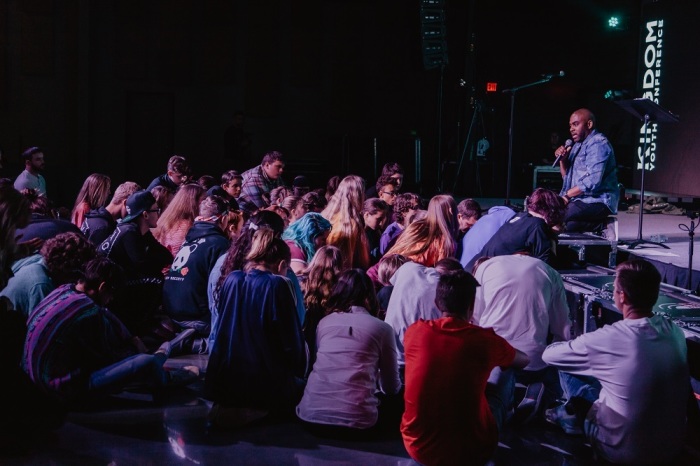Pandemic could result in loss of faith in next generation, Barna researchers say

The coronavirus pandemic could accelerate a loss of faith among the next generation unless churches find ways to better disciple young churchgoers and keep them connected, senior researchers at the Barna Group say.
David Kinnaman, president of the California-based evangelical Christian polling firm and Mark Matlock, director of insights, cited earlier research highlighting how a majority of young people who grew up in the church will either walk away from their faith or from the church when they become young adults, during a recent discussion about the impact of the pandemic on Christians aged 18-29.
And both believe the pandemic will make this crisis of faith even worse unless steps are taken to stanch its impact.
“I think it will. I actually think we’re going to see an increasing number of people who’ve lost connectedness with their faith community, with their usual rhythms and practices. We’re going to actually see an increasing number in the years to come and the long-term impact is even more fallout from that,” Kinnaman said.
“We know that 22% of young people today are what we call ‘prodigals.’ They lost their faith entirely. That number grew by double from 11% 10 years ago. So what it will look like in 10 years is hard to know, but we think it’s going to actually accelerate that problem,” the Barna Group president explained.
When asked about what he was seeing and hearing from churches that are trying to respond to the problem, Matlock highlighted research showing that among adults 18-29 who were raised Christian, only 10% of them are considered ideal or ‘resilient’ disciples. Some 22% are no longer Christian and 30% are classified as ‘nomads’ because they still believe in God but aren’t connected to a church. Another 38% are considered ‘habitual churchgoers’ but have loose ties to God.
“It’s important to realize about that 22% is that they just aren’t coming to church anymore. They’ve said I no longer identify as a Christian, which is pretty serious,” Matlock said.
“There’s another group we call nomads that still identify as a Christian, they’re not connected to church. But there’s another group, they’re not really as connected to God but they’re coming to church pretty frequently and that’s what we call the habitual churchgoers. And then there’s the resilient, kind of what we call the ideal disciple,” he continued.
Matlock suggested that since churches still have relationships with their habitual churchgoers, they could find ways of capitalizing on those relationships and learn how to make them better disciples.
“When we think about the habitual churchgoers, one of the things we know that makes them different from the resilients is that they have meaningful relationships at church. That’s come out of the research that we did for Faith for Exiles. We looked at five kind of themes that contribute to resilient discipleship,” he said. “The pandemic has accelerated the urgency, I believe, in discipling those habitual churchgoers. They are coming to our churches with pretty good frequency but they aren’t really grounded in their faith, practice or belief. And that’s an opportunity that we have.”
Both researchers believe that this group had “their hand on the door” before the pandemic and the enduring impact of the virus could cause them to “turn the knob and walk through it.”
“It means that we have to make personal connections with this generation. We need to be calling every young person that we have contact with. We need to be making a connection with them. Asking them how they're doing? Finding out how their faith has been going. How can we be the church to you? We know that resilients have those relationships, habituals do not. And it’s a hard thing to do in the pandemic to try to build those things but that’s what is most urgent right now,” Matlock added.




























